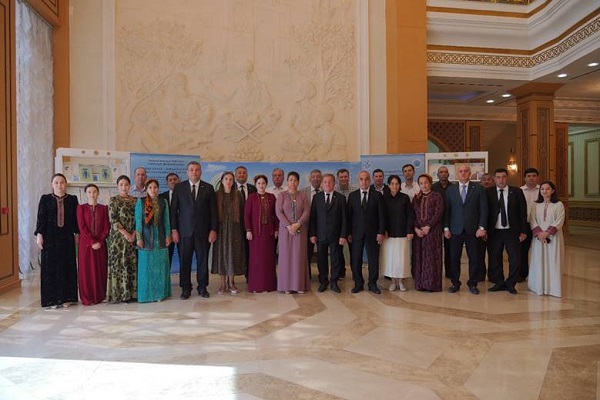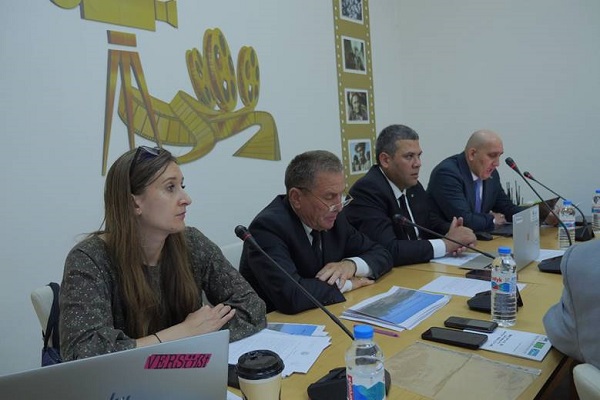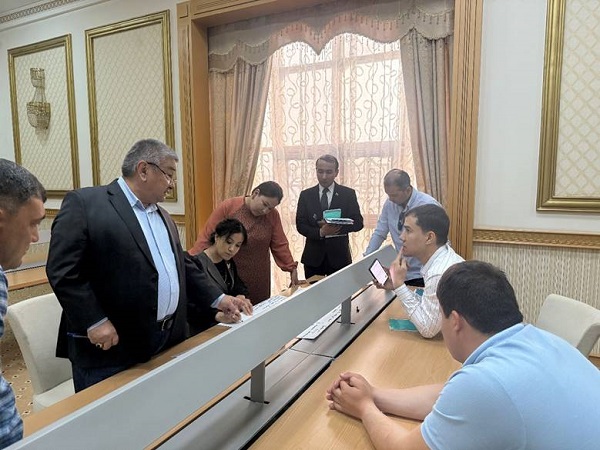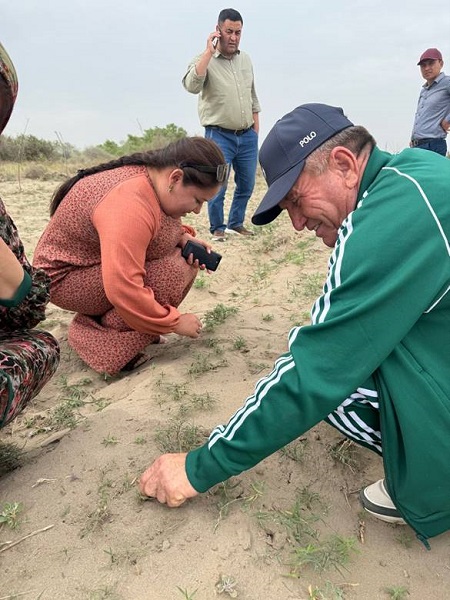At an April workshop on nature-based solutions (NbS), 35 specialists from Turkmenistan learned ways to improve ecosystem services and bolster sustainable natural resource management and resilience to climate change impacts.
NbS describe actions that help protect, sustainably manage and restore natural or modified ecosystems and that address societal challenges effectively and adaptively, benefiting both human well-being and biodiversity.
The Food and Agriculture Organization of the United Nations (FAO), in close collaboration with the Ministry of Environmental Protection of Turkmenistan and the Project Office of the Regional Environmental Centre for Central Asia (CAREC) in Turkmenistan, delivered the three-day training workshop 14–16 April 2025.
Participants learned how Turkmenistan can harness time-tested natural systems to solve pressing environmental problems, such as planting saxaul trees to reduce soil salinity and restoring desert flora to preserve groundwater in response to desertification and related issues.
“Nature-based solutions offer powerful, locally grounded tools to address climate change, land degradation and water scarcity,” said FAO Natural Resources Officer Evetta Zenina, who is leading the project.
Held at the Turkmenabat Central Library as part of an ongoing FAO project on enhancing capacities for climate-resilient water management, the intensive training equipped national specialists from environmental institutions, local authorities, civil society and land user associations with both foundational knowledge and practical skills in NbS.
Expert presentations, dynamic discussions and collaborative groupwork filled the three days to build participants’ understanding of how to integrate NbS into national environmental strategies, given the specific impacts of climate change in the country. A central focus was on developing participants’ abilities to assess local risks and select the most appropriate NbS.
Guided by facilitators – including Zenina; international expert Daler Domullojanov; and Mergen Kepbanov, who directs the CAREC office in Turkmenistan – participants utilized the global World Overview of Conservation Approaches and Technologies (WOCAT) platform and other tools to identify practices relevant to the Lebap region.
From library to field
Participants moved from theory to practice through a second-day visit to a forest department nursery, gaining direct practical expertise guided by experienced trainers.
The workshop empowered the national specialists to combine traditional knowledge with modern approaches, building a strong foundation for resilience and sustainability in the country’s ecosystems, Zenina said.
“By investing in people, we’re investing in the future of the land,” she said. “By strengthening local capacities, we ensure continuity, scalability and long-term impact for climate adaptation efforts in the country.”
The project has laid essential institutional and technical groundwork for large-scale adoption of NbS and sustainable land-use practices in pilot areas of Lebap province, supporting agroecosystem resilience and food security.
The training also serves as a stepping stone towards the upcoming Global Environment Facility (GEF) project Catalysing the Nature-Positive Transformation of the Agricultural Sector in Turkmenistan towards Enhanced Resilience to Climate Change. ///FAO, 28 April 2025



